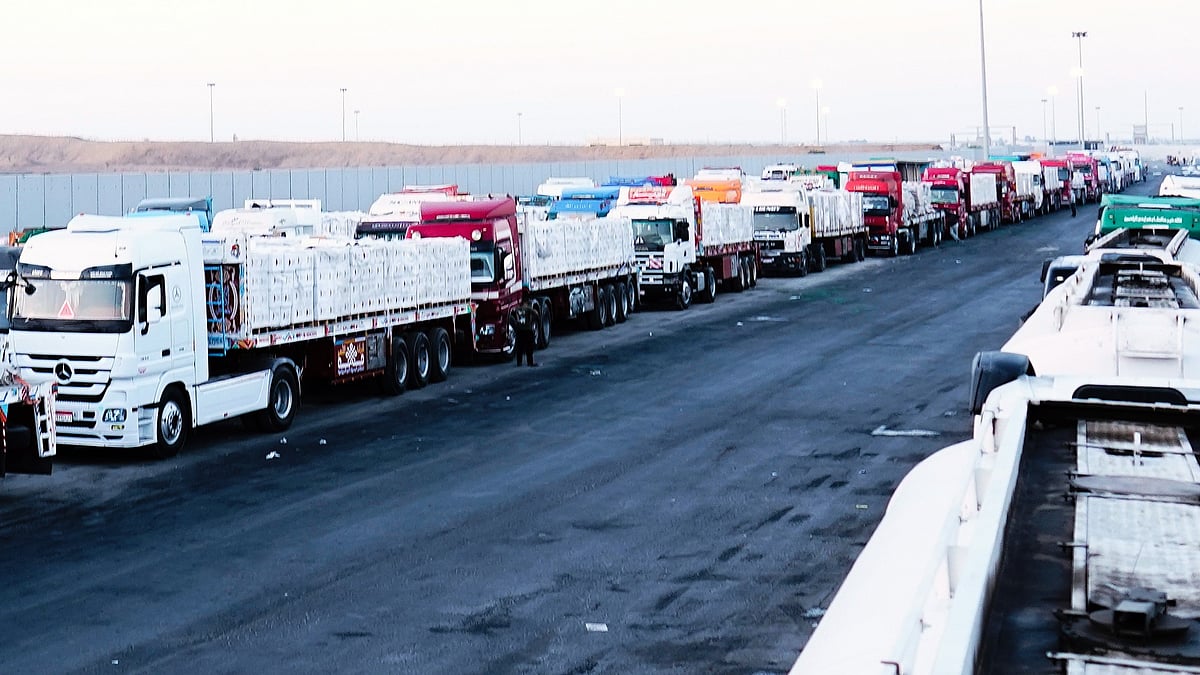World
Ceasefire in Gaza resumes after deadly clashes test fragile truce
Hamas’ armed wing says it remains committed to the ceasefire and is unaware of reported clashes in Rafah

The Israeli military said on Sunday that a ceasefire in Gaza had resumed after an alleged attack that killed two of its soldiers triggered a wave of retaliatory airstrikes which, according to Palestinian officials, left at least 26 people dead — the most serious test yet of this month’s truce.
US President Donald Trump said the ceasefire he brokered remained intact and suggested Hamas leadership might not have been responsible for the latest violence. “We think maybe the leadership isn’t involved in that,” he told reporters aboard Air Force One. “Either way … it’s going to be handled toughly but properly.”
Trump said he did not yet know whether Israel’s strikes were justified. “I’d have to get back to you on that,” he added.
An Israeli security source said aid deliveries into Gaza were expected to resume on Monday following US pressure, shortly after Israel announced a temporary halt to supplies in response to what it described as a “blatant” Hamas violation of the truce.
The Israeli Defence Forces said they had carried out strikes across Gaza, targeting Hamas field commanders, gunmen, a tunnel and weapons depots, after militants launched an anti-tank missile and opened fire on Israeli troops, killing two soldiers.
Palestinian residents and health officials said at least 26 people were killed in the air raids, including one woman and a child. One strike reportedly hit a former school in Nuseirat being used to shelter displaced families.
“We’re going to have to see what’s happening. We want to make sure that it’s going to be very peaceful with Hamas,” Trump said. Trump’s envoy Steve Witkoff and son-in-law Jared Kushner were expected to travel to Israel on Monday, according to both Israeli and US officials.
Published: undefined
Hamas’ armed wing said it remained committed to the ceasefire and was unaware of the clashes in Rafah, saying it had not been in contact with groups there since March.
US vice-president J.D. Vance did not address the Israeli strikes but said Hamas’ fragmented structure posed challenges to maintaining the truce. “There are about 40 different cells of Hamas,” Vance told reporters. “Some of those cells will probably honour the ceasefire. Many of those cells, as we saw some evidence of today, will not.”
He added that securing Gaza would eventually require “some of these Gulf Arab states to get forces in there, to actually apply some law and order and security keeping on the ground.”
Israeli Prime Minister Benjamin Netanyahu said he had ordered the military to respond “forcefully” to what he described as Hamas’ violations of the ceasefire.
Path to peace uncertain
Fearing a collapse of the truce, Palestinians crowded markets in Nuseirat to stock up on essentials, while families fled homes in Khan Younis after nearby airstrikes.
The escalation echoed Israel’s response to ceasefire breaches by Hamas’ Lebanese ally Hezbollah in late 2024 — a truce that has largely held despite early tensions and mutual accusations of violations.
But major obstacles remain to any lasting peace in Gaza. A previous ceasefire collapsed in March after nearly two months of calm, when Israel launched heavy airstrikes following renewed cross-border attacks.
Dispute over hostage remains
The current ceasefire, which began on 10 October and halted two years of war, has been marked by ongoing accusations of violations by both sides.
Published: undefined
Israeli defence minister Israel Katz said a physical “yellow line” would mark the limits of Israeli troop withdrawal under the truce, warning that any attempt to cross it would “be met with fire”.
Hamas accused Israel of a series of breaches that it said had killed 46 people and blocked essential supplies from entering the enclave.
On Saturday, Israel said the Rafah border crossing with Egypt — expected to reopen this week — would remain closed until Hamas fulfilled its ceasefire commitments.
Israel also accused Hamas of delaying the return of the bodies of deceased hostages. Hamas last week freed all 20 surviving hostages and has since handed over 12 of the 28 bodies of those confirmed dead. Hamas said it had no desire to retain the remaining bodies but that recovery efforts were hindered by rubble from airstrikes.
Humanitarian aid still falling short
The Rafah crossing has been largely closed since May 2024. Under the ceasefire deal, aid to Gaza was to be scaled up significantly, with hundreds of thousands of residents already facing famine conditions, according to the IPC global hunger monitor.
In previous truces, Rafah served as a vital entry point for humanitarian aid. While deliveries through another crossing had increased since the truce began, Sunday’s halt again disrupted supplies.
The United Nations said that although aid flows had improved, they remained well below the level required to address Gaza’s deepening humanitarian crisis.
Key questions remain unresolved — including Hamas’ disarmament, the territory’s future governance, the composition of an international “stabilisation force,” and progress toward establishing a Palestinian state.
With agency inputs
Published: undefined
Follow us on: Facebook, Twitter, Google News, Instagram
Join our official telegram channel (@nationalherald) and stay updated with the latest headlines
Published: undefined